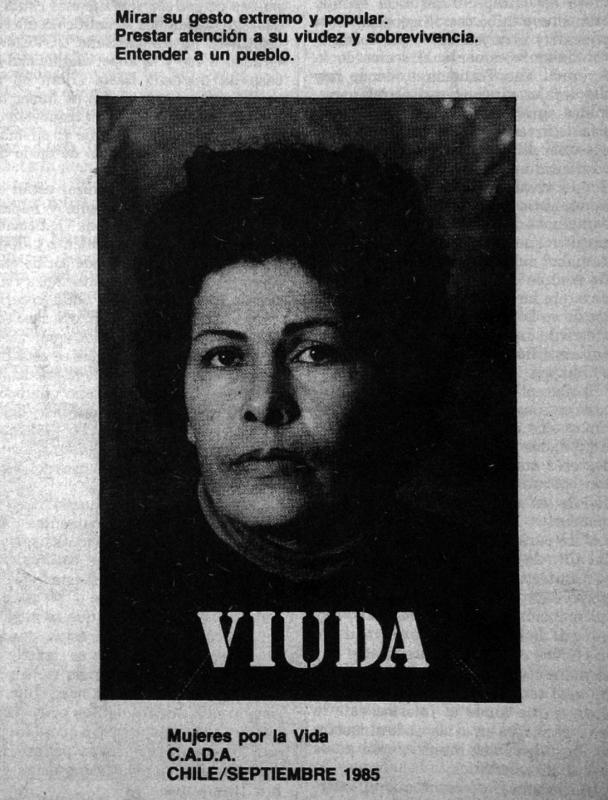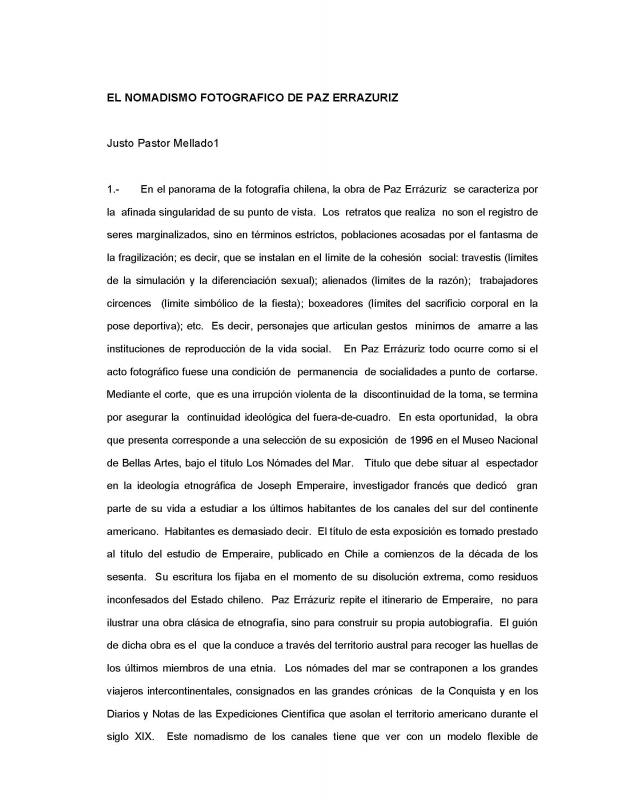The photographer Paz Errázuriz (b. 1944) showed her Tango series for the first time in 1988 at the Carmen Waugh-La Casa Larga gallery in Santiago. The catalogue for the exhibition, titled De a dos, included the essay “Paz Errázuriz y el tango,” written by the critic and writer Enrique Lihn (1929–1988). This was not the first time these two had worked together: in 1983 Lihn published El Paseo Ahumada, a book of experimental poems formatted to look like a newspaper, which included photographs by Errázuriz and Marcelo Montecino (b. 1943).
Errázuriz, who was self-taught, produced a body of photographic work that has left its mark in the Chilean art world; her series of portraits and images of a wide range of social groups have earned her recognition as “the photographer of marginalized people,” characterized by a peripheral aesthetic. Over the course of time, her work has come to embody an ethical approach that captures the diversity of lifestyles in Chile that she has committed to explore. In addition to her career as a photographer, she founded the AFI (Asociación de Fotógrafos Independientes, 1981–1990), a group whose photographs and work with the local and international press helped to condemn the repression and defy the censorship under which Chileans were forced to live after the Pinochet coup d’état (1973–90) that led to an authoritarian regime that remained in power for seventeen years. During that period, she worked with the art action collective C.A.D.A. (Colectivo Acciones de Arte), taking an active role in the group’s final project, Viuda (1985). [See the ICAA Digital Archive: “Viuda: inserto del C.A.D.A” (doc. no. 732034).]
Writing plays a key role in Errázuriz’s work, and she has collaborated with writers on several books, including La manzana de Adán (Adam’s Apple, 1990) with the cultural journalist Claudia Donoso (b. 1955); El infarto del alma (Heart Attack of the Soul) with the writer Diamela Eltit (b. 1949), and La luz que me ciega (The Light That Blinds Me) with the poet Malú Urriola (b. 1967). Her work has also been shown in a variety of ways that are unusual in the field of photography. Her lengthy career and myriad projects received due recognition when she was awarded the Premio Nacional de Artes Plásticas (2017), the highest honor given by the Chilean government. [To review another text about her work, see: “El nomadismo fotográfico de Paz Errázuriz” (doc. no. 757526) by Justo Pastor Mellado.]


